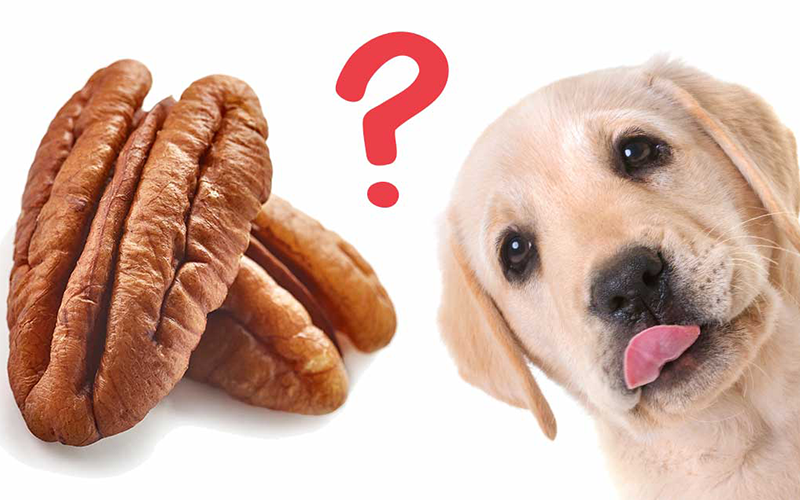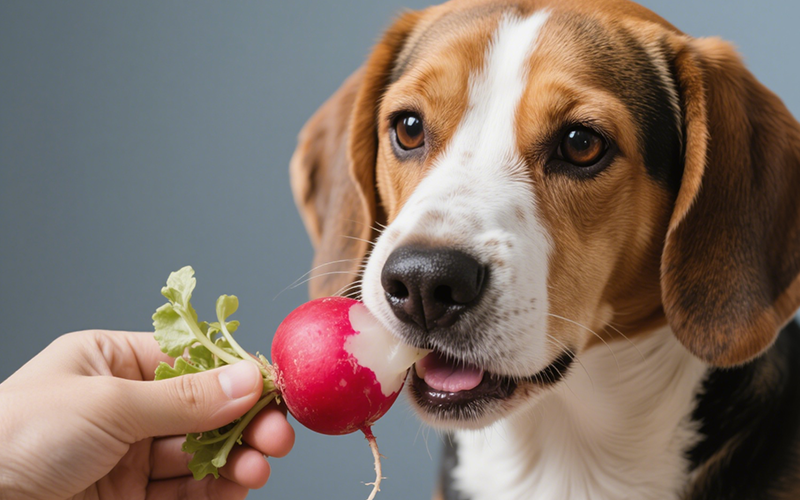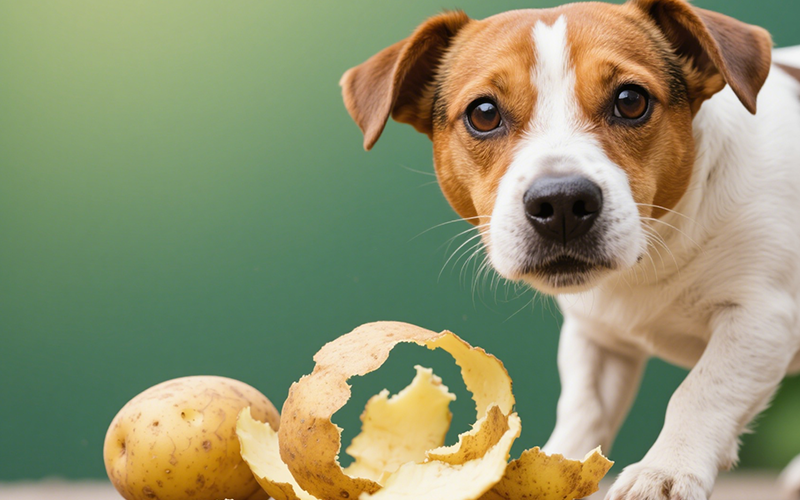Can Dogs Eat Pecans? A Guide to Feeding Pecans Safely to Your Dog
- 25 Feb 2025 13:57
If you’re a fan of snacking on pecans, you might wonder if it’s safe to share these delicious nuts with your dog. After all, nuts can be a tasty and nutrient-packed treat for humans, but when it comes to dogs, not all nuts are created equal. So, can dogs eat pecans? While pecans are not considered highly toxic, they do pose certain risks, and it’s important to understand these potential hazards before offering them to your dog. In this article, we’ll take a closer look at whether pecans are safe for dogs, the risks involved, and how to feed them safely (if at all).

Are Pecans Safe for Dogs?
Pecans are technically not toxic to dogs, but they are not recommended for your furry friend due to several factors. While they don’t contain the same harmful substances as certain other nuts (like macadamia nuts), there are still reasons to exercise caution. Here are the key points to consider:
High in FatPecans are very high in fat. While dogs need some fat in their diet, too much fat can lead to issues like obesity and pancreatitis (inflammation of the pancreas). Overfeeding high-fat foods like pecans can put your dog at risk of these serious health conditions, especially if consumed regularly.
Choking HazardPecans are small, but they can still be a choking hazard, particularly for small dogs. Whole nuts are difficult to chew, and they can get stuck in your dog’s throat or cause an obstruction in the digestive tract. Always consider your dog's size before offering any nut and make sure it’s cut into smaller pieces to minimize the risk.
Toxicity from MoldLike many other nuts, pecans are susceptible to mold growth if stored improperly. Moldy pecans can contain mycotoxins, which are dangerous to dogs. Ingesting moldy pecans can cause vomiting, diarrhea, and other symptoms of food poisoning. Always ensure that any nuts you offer your dog are fresh and haven’t been sitting out for too long.
Digestive UpsetEven non-moldy, fresh pecans can cause digestive issues in dogs. They are difficult for dogs to break down and digest, especially if they’re not used to eating them. This could lead to gastrointestinal upset, including gas, bloating, diarrhea, or even more serious conditions like intestinal blockage in extreme cases.
Allergic ReactionsSome dogs may have allergies to nuts, including pecans. If it’s the first time you’re feeding pecans to your dog, start with a very small amount and monitor for any signs of an allergic reaction, such as itching, swelling, or hives. If your dog shows any signs of an allergy, stop feeding them pecans immediately.
Can Pecans Be Given to Dogs in Moderation?
If you still decide to give your dog pecans, it’s essential to do so with extreme caution and in moderation. Here are some tips for offering pecans safely:
Small Quantities
If you choose to offer pecans to your dog, keep the portion small. A single pecan or a few pieces can be enough for a treat. Make sure not to overfeed them to avoid the risk of pancreatitis or gastrointestinal issues. Pecans should never be a regular part of your dog’s diet.Ensure Freshness
Only offer fresh pecans that have been properly stored. Do not feed your dog any pecans that appear moldy, discolored, or have been sitting out for long periods. Moldy nuts can cause food poisoning, so it’s essential to give your dog only fresh, safe food.No Salt or Seasoning
Pecans that are salted or flavored with seasonings like garlic, onion, or other additives are harmful to dogs. Avoid giving your dog salted pecans or any pecans with added flavorings. Too much salt can lead to sodium toxicity, while garlic and onion are toxic to dogs.Cut the Pecans into Small Pieces
To reduce the risk of choking, always cut the pecans into small, bite-sized pieces before giving them to your dog. This is especially important for smaller dogs who may have difficulty chewing large or hard nuts.Watch for Digestive Issues
If your dog eats pecans and you notice any signs of digestive upset, such as vomiting, diarrhea, or bloating, stop feeding them pecans immediately. It’s always a good idea to check with your vet if your dog shows any signs of distress after eating something new.
What Should You Do if Your Dog Eats Pecans?
If your dog happens to eat a large quantity of pecans or any moldy nuts, it’s important to watch for symptoms of poisoning or digestive issues. Signs of food poisoning from moldy pecans or a nut overdose can include:
Vomiting
Diarrhea
Lethargy
Loss of appetite
Abdominal pain or bloating
If you notice any of these symptoms, contact your veterinarian immediately for advice. In some cases, your dog may need to be treated for toxicity or gastrointestinal problems.
Nuts to Avoid for Dogs
While pecans are one of the safer nuts, it’s important to know that there are several other nuts and foods that can be toxic to dogs and should always be avoided. These include:
Macadamia nuts: These nuts are highly toxic to dogs and can cause weakness, vomiting, tremors, and fever.
Walnuts: Walnuts, particularly black walnuts, can be contaminated with mold that produces harmful mycotoxins.
Pistachios: High in fat, pistachios can cause digestive upset and pancreatitis in dogs.
Almonds: While not toxic, almonds can be difficult for dogs to digest and can cause choking or gastrointestinal issues.
Alternatives to Pecans
If you're looking for a healthier, safer snack for your dog, there are plenty of dog-safe alternatives to pecans. Some options include:
Peanut butter: A small amount of unsweetened, unsalted peanut butter can be a tasty treat for your dog.
Carrots: Low-calorie and full of nutrients, carrots make for a crunchy and healthy snack.
Blueberries: Packed with antioxidants, blueberries are a great fruit to share with your dog in moderation.
Apple slices: Apples (without seeds or core) are a great low-calorie treat for dogs.
Pumpkin: Plain canned pumpkin (not the spiced pie filling) is great for digestive health.
Should You Use PettureX for Your Dog’s Health?
If you’re ever uncertain about what foods are safe for your dog or if your dog eats something they shouldn’t, you can always rely on PettureX for help. PettureX provides 24/7 online consultations with professionals who can guide you on your pet's health and nutrition, ensuring your dog stays safe and healthy.
Conclusion: Can Dogs Eat Pecans?
In conclusion, while pecans are not toxic to dogs, they are not the best choice as a treat due to the risks of choking, digestive upset, and the high-fat content that can lead to health issues like pancreatitis. If you do decide to offer pecans to your dog, it’s important to do so in moderation, ensure they are fresh and unsalted, and watch for any signs of digestive issues.
Always consider safer alternatives, like peanut butter, carrots, or blueberries, if you’re looking for a dog-friendly snack. And when in doubt, consult with PettureX for expert advice to keep your dog’s diet safe and balanced.
Related

Radish Bites for Your Buddy? A Vet-Reviewed Guide on Whether Dogs Can Eat Radishes
- 22 Apr 2025
Potato Peels for Pooches? Unpeeling the Risks and Facts for Dog Owners
- 22 Apr 2025
Crunchy Curiosity: Can Dogs Safely Snack on Pork Rinds? A Deep Dive
- 21 Apr 2025
Pomegranate Seeds and Pooches: A Deep Dive into Whether Dogs Can Safely Indulge
- 21 Apr 2025
Can Dogs Eat Peaches? Vet Explains Benefits, Cyanide Risks & Safe Serving
- 16 Apr 2025
Can Dogs Eat Mulberries? Vet Explains Safety, Benefits & Potential Risks
- 16 Apr 2025
Can Dogs Eat Mozzarella? Vet Explains the Cheesy Truth (Risks & Benefits)
- 16 Apr 2025
Can Dogs Eat Mango Skin? Vet Explains Why It's a Risky Chew!
- 16 Apr 2025
Can Dogs Eat Maple Syrup? The Sugary Truth & Why Vets Advise Against It
- 16 Apr 2025
Can Dogs Eat Mac n Cheese? Vet Explains Why This Comfort Food Is Unsafe!
- 16 Apr 2025
